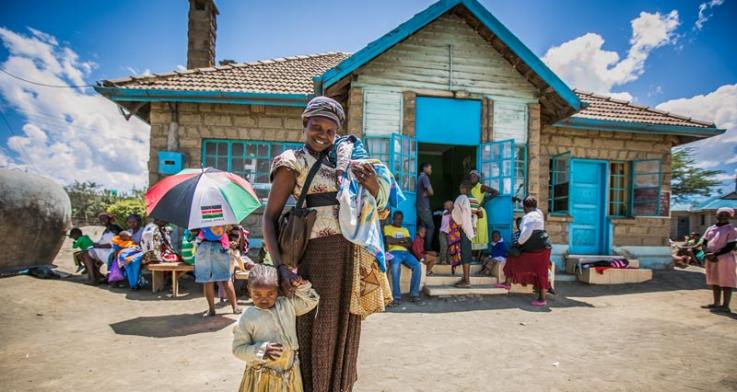
FROM: Victor Balta
University of Washington
206-543-2580 balta@uw.edu
The University of Washington’s Population Health Initiative, which aims to bring together the research and resources of the UW and partners around the Puget Sound and beyond to improve the health and well-being of people around the world, has received a significant vote of support from the Bill & Melinda Gates Foundation, the university announced Tuesday.
In May, the UW launched an initiative to develop a 25-year vision to improve population health locally and globally by focusing on three key areas: human health, environmental resiliency, and social and economic equity. The Bill & Melinda Gates Foundation has awarded a $210 million gift that will serve as a catalyst for the vision, funding construction of a new building to house several UW units working in population health, as well as serving as a place for faculty, students and collaborators from the many university departments and global partners that are part of the effort to come together in their work.
“Melinda and I are pleased to make this investment in the University of Washington to help dramatically accelerate their 25-year vision to achieve positive health outcomes for populations around the world. UW has long been a partner in our foundation’s global health and development efforts and this grant underscores our confidence in the school’s students, faculty and multi-disciplinary resources to advance their Population Health Initiative,” Bill Gates said.
The UW’s Population Health Initiative recognizes that the health of an individual or a community involves more than just the absence of disease. Issues from poverty and equity, to health care access, to climate change and government policies all combine to affect the health and well-being of populations around the world, creating health disparities between countries and even within communities. The initiative builds on the UW’s public mission of service to improve health around the world.
We believe we have a moral imperative to bring together the tremendous knowledge and resources of the UW and the Puget Sound region and channel them towards improving health and well-being here in Washington and around the world,” UW President Ana Mari Cauce said. “We are grateful and honored to receive this generous support from the Gates Foundation, which recognizes that the UW is among a small subset of institutions equipped to tackle the health challenges we face on a global scale.
The new building will serve as a hub for collaboration on population health across a range of disciplines at the University. When completed, it will house the Department of Global Health, Institute for Health Metrics and Evaluation, and portions of the School of Public Health – all of which are currently spread out in various locations across Seattle – and provide a central gathering place for partners from around the University, region and world. The location of the building has not yet been determined. However, several sites on the main Seattle campus are under active consideration.
Over the next quarter century, the Population Health Initiative will expand the UW’s ability to turn the diagnosis of patients, populations and the planet into actionable policies, reforms, interventions and innovations. The University will strengthen its commitment to reducing the diseases, afflictions, and health disparities that detract from and shorten the lives of far too many people both locally and globally. Recognizing that factors such as air pollution and access to clean water contribute to health disparities, the UW will work toward ways to meet the challenge of environmental sustainability, particularly in those communities most likely to be harmed by climate change. And the UW will strive to address the social and economic inequities that often leave communities here and around the world mired in poverty and poor health.
The Gates Foundation gift is among the largest single contributions in the UW’s history and will dramatically accelerate the 25-year vision of collaboration among diverse fields in the health sciences and beyond, including education, engineering, environmental sciences, law, the arts, humanities, social sciences, business and others.
The gift comes at a time when the University is launching its most ambitious philanthropic campaign in its history, “Be Boundless — For Washington, For the World,” aimed at transforming lives and expanding opportunity. The campaign launched on Oct. 21 and seeks to raise $5 billion by 2020.
